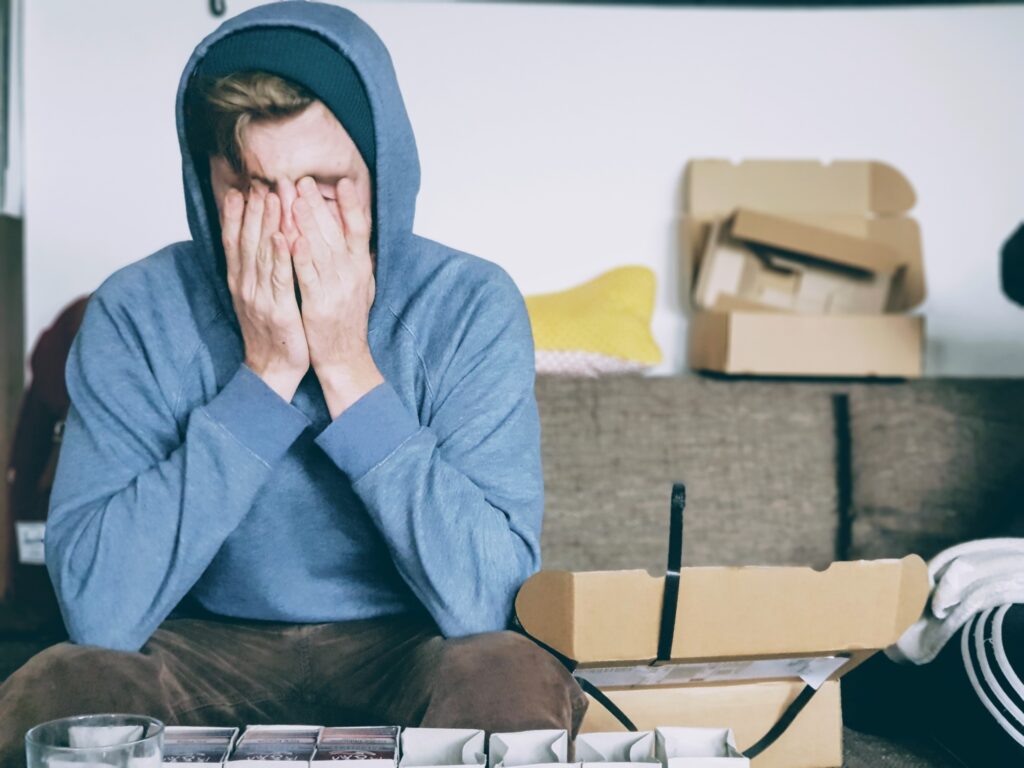In these uncertain times, many people are experiencing fear and worry related to COVID-19. According to a poll conducted by the American Psychiatric Association, 36% of Americans reported that the virus “is having a serious impact on their mental health (1).” The increase in anxiety has translated into other behaviors for some people, including difficulty sleeping, fighting with partners and loved ones more frequently, or having trouble focusing. The connection between the mind and the body, and mental and physical stress, comes as no surprise – your thoughts can affect how your body feels, and the sensations of your body can affect your thoughts (4). Fortunately, there are techniques to simultaneously ease the strain of stress on both.
The stress response is meant to prepare us for action in dangerous situations, but at times the body’s response may seem excessive. Stress hormones cause our muscles to tense, our heart rate and breathing to quicken, and our pupils to dilate in what is called the “fight-or-flight” response (2). While this can be a useful survival mechanism, the triggering of these physical cues in response to stressors that we can neither fight off or run from, such as the fear of illness, can take a toll. Chronic stress can even beget more stress and lead to increased insomnia, depression, and headaches among other symptoms (2). It can also strain the immune system, allowing a person to be more susceptible to illnesses (3).
There are many ways to interrupt the stress response. One way is to purposefully relax your mind and body. This may take the form of meditation, mindfulness, or other self-care like a hot bath and soothing music. Take a few minutes to sit quietly and do some deep breathing. Mentally make a note of how your body feels, and tense then relax your muscle groups from head to toe. You may realize that you have been clenching your jaw, and that relaxing those muscles eases your headaches (2,5). Another way is to participate in physical activity. A brisk walk, some yoga, jumping rope, or doing some bodyweight exercises like squats and jumping jacks can help to burn off anxious energy. The exercise also encourages deep breathing and loosens muscle tension (2). Additionally, consider limiting your exposure to the news, social media, or other sources that focus heavily on the pandemic. While it is important to remain informed, constantly hearing about the pandemic can be unnecessarily stressful (5). Finally, continue to enjoy your close social relationships by connecting in ways that are meaningful for you. Text or call your friends and loved ones, play board games with your family, or organize a Netflix Party as a way to stay engaged from a distance. Remember, it is normal to have anxious thoughts and feelings during this time. By recognizing how your body is feeling and why it is feeling that way, you can begin to put the brakes on your stress.
References:
- New poll: COVID-19 impacting mental well-being: Americans feeling anxious, especially for loved ones; older adults are less anxious [fusion_builder_container hundred_percent=”yes” overflow=”visible”][fusion_builder_row][fusion_builder_column type=”1_1″ background_position=”left top” background_color=”” border_size=”” border_color=”” border_style=”solid” spacing=”yes” background_image=”” background_repeat=”no-repeat” padding=”” margin_top=”0px” margin_bottom=”0px” class=”” id=”” animation_type=”” animation_speed=”0.3″ animation_direction=”left” hide_on_mobile=”no” center_content=”no” min_height=”none”][press release]. Washington, DC: American Psychiatric Association; March 25, 2020.
- Understanding the Stress Response. Harvard Health Publishing; May 1, 2018.
- Pietrangelo , A., & Watson, S. The Effects of Stress on Your Body. June 5, 2017
- Mind-Body Wellness. Healthwise Staff; June 28, 2018.
- Stress and Coping. Centers for Disease Control and Prevention; April 1, 2020.
[/fusion_builder_column][/fusion_builder_row][/fusion_builder_container]

